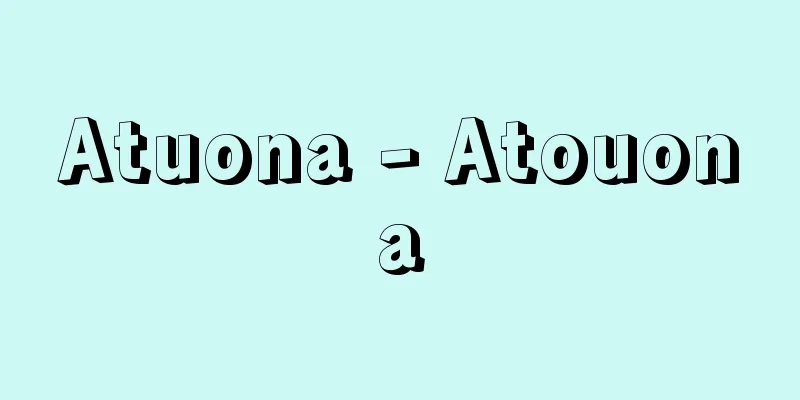Table - Front

[1] [noun] (same etymology as "omote (face)") The part of something that is visible to the public. Also, when something has two sides, the side that is visible to the public. ⇔ura. [1] The uncovered, outer or visible part of something. ① The outermost surface of something. Surface. Outer surface. ※Genji (c. 1001-14), Wakamurasaki "Looking out over the surface of the sea, it was strangely like no other place." ② The part that is easily visible from the outside. (a) The part that is visible to the outside. Surface. ※Maihime (1890) by Mori Ogai "My true self, hidden deep within, is gradually revealed to the outside." (b) The part that is made to be shown to the outside. Appearance. Outer appearance. Appearance. ※Nippo Jisho (1603-04) "Vomote (wo mote) ura no aru hito" ※Gyojin (1912-13)〈 Natsume Soseki〉After he got home, "I felt it was a little funny, but on the surface I just nodded and said, 'I see. '" (ha) The things written on documents, signs, etc. Also, those documents. It also refers to the hexagrams that appeared in fortune telling. ※Kokin Chomonshu (1254) 1 "I believe I have written the table and presented it to you." ※Kakushihon・Kogutsuki (1780) 4 "The table showing the fortune telling says that the 125 ryo gold coins will be cleared up." ③ Something that is worthy of being clearly shown to others as a matter of course . Something that should be valued above all else, official, or formal. (i) Something that is not something that is done privately but is openly shown as a matter of course. Something that is on the surface. One's actual duties. ※Rennyo Gosho (1461-98) 2 "On the outside one should adhere to the royal law, but in one's heart one should take the common benevolence and righteousness as one's true foundation." ※Joruri, Omo no Seyama Onna Teikin (1771) 3 "Not shedding a single tear is the exterior of a warrior." (B) Something that should be valued above all else. To be displayed in front. Main focus. ※Gyokujinsho (1563) 7 "The people of the Jin era embraced elegance." (C) To show or display clearly. Evidence. Sign. ※Joruri, Nembutsu Ojoki (c. 1687) Meisho zukushi "By conquering evil and destroying delusion, one should be able to give oneself a sense of security." (D) An art worthy of being shown to the public. An art one is good at. A public art. ※Kyogenki Kakusui (1660) "I wish to put my art on the front of the signboard and marry a man." ④ This world. Also, the people who live there. Society. ※Iyana Kanji (1960-63) <Takami Jun> 4 "The one who killed Inozawa Ichitaro is said to be you, according to society." [2] The main member of a pair. ① The face that is usually visible. The front. The surface. ※Doza (around 935) February 5, Shohei 5th Year "When I put it on, the sea becomes like the surface of a mirror." ② The outer cloth when wearing a kimono or obi. [Meigoki (1275)] *Ukiyo-zoshi, Koshoku Ichidai Otoko (1682), 7 "How sad, how many things one speaks, and how much one wishes one could promise the front of this island. " ③ (Men) In battle, to be located on the front line closest to the enemy. In front. In front. In front. ※Konpira Honpōgen (around 1220), part 1: "Ito Roku, who had advanced to the front, pushed him right in the middle and fired." ④ The front of a castle, mansion, etc. that is visible to the public. ( i ) The front of a house, etc. Also, the front of a store. ※Torahirohon Kyogen, Suminuri (late Muromachi period - early early modern period), "It is said that a familiar voice spoke from the front." (ii) The front of a house or a storefront. ※Torahirohon Kyogen, Suminuri (late Muromachi period - early early modern period), "It is said that a familiar voice spoke from the front." (ii) The front of a house or a place outside. Outside. Outdoors. ※Hyōbōki: Naniwa no 㒵 is Ise no Shirafune (around 1683) 2 "When I look outside, the flowers on the treetops are suddenly falling." ※Five-story Pagoda (1891-92) by Koda Rohan 2 " Outside , the children are playing with spinning tops. " (Ha) The room closest to the entrance of a house. Also, the room for welcoming guests. The front room. ※Toraakihon Kyogen: Suminuri (late Muromachi period - early modern period) "Please come to the front first and say something." ⑤ The rooms and areas of the Edo Castle palace that are used for government officials' and feudal lords' quarters and ceremonies, excluding the Ooku and the shogun's private living quarters. Also used for the residences of feudal lords and the like. ※Kakushihon: Gekijō Suigō Maku no Soto (1806) 1 "It looks like Enji going to the front." ⑥ Something that covers the surface of tatami mats, geta, etc. Goza. [Nippo Jisho (1603-04)] *Gan (1911-13) <Mori Ogai> 5 "The tatami mats also need to be changed." ⑦ (a) A general term for the bow of a ship. Bow . *Heike (early 13th century) vol. 11 "He stood on the front of the ship and said in a loud voice" (b) Abbreviation of "omoteshi (front staff)." *Jiki Monogatari (1850) vol. 1 "Omote (Hayada Village, Iwafune County, Shimo Echigo) Kinroku (age 49) took the place of Migita Katakuchiya Yazaemon on the crew." ⑧ (In contrast to the dressing room in a theater, which is called ura ) Spectator seats. Also, a place where accounting for spectator seats is done. ※Actor's Analects (1776), Sado Island Diary, "The dressing room and the front are agreed upon, but"⑨ In renhai, the "mote" refers to the front side of the folded kaishi (small paper) . When simply referred to as " omote", it refers to the front side of the first fold, and in the case of a 100-verse poem, it refers to the front eight lines, and in the case of a kasen, it refers to the front six lines. It can also be written as "omote " and refers to the lines that can be seen on the front or back of the kaishi (14 lines for a 100-verse poem, 12 lines for a kasen). ※Haiku, Shinzo Inu Tsukuba Collection (1643), Abura Kasu, "Meisho Kuni Shingi Shaku Kyo Koi Mujou Shou Kokou No Omotte"⑩ A modern term referring to female love in contrast to male love. ※Ukiyo-zoshi Koshoku Ichidai Onna (1686), 3: “Without any unpleasantness on the outside, I loosely put on my obi” ⑪ Abbreviation of “Omote Yagura (Front Tower) (2)”. ※Sakehon Tatsumi-no-sono (1770), “When the husband turns the top from the front in the spring hill” ⑫ In baseball, it refers to the time when the first batting in each inning is attacking. “The top of the seventh inning” ⑬ In judo and sumo, it is an official technique. ※Storybook Bushi Shi Yutaka (1798), Jujutsu: “This is the front , and if you take the back, you will immediately do this” ⑭ Abbreviation of “Omote Senke (Omote Senke)”. [2] [Phrase] When attached to a noun to form a compound word. ① To be heading in a certain direction. To be facing a certain side. ※Genji (around 1001-14) Kiritsubo "Lowered to the south" 2. Land or region in a certain direction. ※Amakusahon Heike (1592) 2 "Miya wa hienoyama to nara vomote (wo mote) Koso sari to mo wa seraretare"Hyoheu [front]Table - suruheu... [Table]Hyo- suheu... [Table]Source: The Selected Edition of the Japanese Language Dictionary About the Selected Edition of the Japanese Language Dictionary Information |
[1] 〘名〙 (「おもて(面)」と同語源) 物事の、人の目にふれる部分。また、二面ある物事のうちで、人目につく面。⇔うら。[一] おおわれていない、物事の外側や外面の部分。① 物の、最も外側の面。表面。外面。※源氏(1001‐14頃)若紫「海のおもてを見渡したるほどなむ、あやしくこと所に似ず」② 外部からよく見える部分。(イ) 外に出ている部分。表面。※舞姫(1890)〈森鴎外〉「奥深く潜みたりしまことの我は、やうやう表にあらはれて」(ロ) 外に見せるようにした部分。うわべ。外見。見え。※日葡辞書(1603‐04)「Vomote(ヲモテ)ウラノ アル ヒト」※行人(1912‐13)〈夏目漱石〉帰ってから「少し滑稽を感じたが、表(オモテ)ではただ『成程』と肯(うけ)がった」(ハ) 文書、立札などで記載されている事柄。また、その文書。占いで現われた卦(け)をもいう。※古今著聞集(1254)一「表を書て奉りけるとなむ」※滑稽本・古朽木(1780)四「百廿五両の金子、さっぱりすませといふ占の面(オモテ)でござる」③ 本来のこととして、はっきりと人前に示すに足ること。第一に重んずべきことや公式、正式のこと。(イ) 内輪のことではなく本来のこととして表だっていること。表向きのこと。本来のつとめ。※蓮如御文章(1461‐98)二「王法をもておもてとし、内心には〈略〉世間の仁義をもて本(ほん)とすべし」※浄瑠璃・妹背山婦女庭訓(1771)三「涙一滴こぼさぬは武士の表」(ロ) 第一として重んずべきこと。正面に掲げること。主眼。※玉塵抄(1563)七「晉の代の人は風流をもてにして」(ハ) はっきりと示しあらわすこと。証拠。しるし。※浄瑠璃・念仏往生記(1687頃)名所尽し「悪を制し妄をやぶるをもって安心のおもてとし」(ニ) 人前に見せるに足る芸。得意とする技芸。表芸。※狂言記・角水(1660)「それがしが芸を表(オモテ)にたて札の面につき、むこ入をいたそうとぞんずる」④ この世の中。また、そこに住む人々。世間。※いやな感じ(1960‐63)〈高見順〉四「猪沢市太郎を殺したのはオモテ(世間)じゃ、あんただとなってるが」[二] 一対をなすものの主だった方。① 通常目に見える面。正面。表面。※土左(935頃)承平五年二月五日「うちつけに海は鏡のおもてのごとなりぬれば」② 着物や帯を身につけたとき、外側になる布。〔名語記(1275)〕※浮世草子・好色一代男(1682)七「悲しや、様々口がため、ぐんない島(じま)のおもてを約束するこそきのどくなれ」③ (面) 戦のときに、敵に最も近い前線に位置すること。前面。正面。先(さき)。※金刀比羅本保元(1220頃か)中「面にすすみたる伊藤六がまんなかに押当て放ちたり」④ 城、屋敷などで人の目にたつ前の方。(イ) 家などの正面。また、店先。※虎寛本狂言・墨塗(室町末‐近世初)「聞馴れた声で表に物申と有る」(ロ) 家の前や外の方。戸外。屋外。※評判記・難波の㒵は伊勢の白粉(1683頃)二「そと面を見れば俄に梢の花ちり敷」※五重塔(1891‐92)〈幸田露伴〉二「戸外(オモテ)では無心の児童(こども)達が独楽戦(こまあて)の遊びに」(ハ) 家のなかで入口に近い部屋。また、客を迎える部屋。表座敷。※虎明本狂言・墨塗(室町末‐近世初)「先おもてへとおらせられひといふてくれさしめ」⑤ 江戸城御殿のうち、大奥と将軍の私的居住区を除いた、役人、大名の詰所や儀式にあてられる部屋や場所。大名などの邸にもいう。※滑稽本・戯場粋言幕の外(1806)上「トントお表へ上る艷治に似ておるよ」⑥ 畳や下駄などの表面をおおうもの。ござ。〔日葡辞書(1603‐04)〕※雁(1911‐13)〈森鴎外〉五「畳の表(オモテ)も換へなくてはならない」⑦(イ) 船首部の総称。舳(へ)。※平家(13C前)一一「船のおもてに立いで、大音声をあげて申けるは」(ロ) 「おもてし(表仕)」の略。※時規物語(1850)一「表(下越後岩船郡早田村)金録(同四拾九歳)右片口屋八左衛門と代り乗組」⑧ (劇場で楽屋を裏(うら)というのに対して) 見物席。また、見物席に関する会計などをする仕切場。※役者論語(1776)佐渡島日記「楽屋、おもてとも彼是申合けれども」⑨ 連俳で、二つに折った懐紙(かいし)の表側に当たる面。単に「おもて」というときは、第一紙(初折(しょおり))の表側をさし、百韻の場合は表八句、歌仙の場合は表六句をいう。また「面(おもて)」と書いて、懐紙の表や裏の見通しの句(百韻なら一四句、歌仙なら一二句)をいう場合もある。※俳諧・新増犬筑波集(1643)油糟「名所国神祇尺教恋無常 述懐懐旧おもてにぞせぬ」⑩ 男色に対して女色をいう近世の語。※浮世草子・好色一代女(1686)三「表の嫌ひはなきものと、しどけなく帯ときかけて」⑪ 「おもてやぐら(表櫓)(二)」の略。※洒落本・辰巳之園(1770)「夫からおもての春岡で、こまが有から廻したら」⑫ 野球で、各回(イニング)の先攻が攻撃する間のこと。「七回の表」⑬ 柔道や相撲で、正式の技。※咄本・無事志有意(1798)柔術「サ是が表(オモテ)、又裏をとればすぐにこういたす」⑭ 「おもてせんけ(表千家)」の略。[2] 〘語素〙 名詞に付いて複合語を作る。① ある方向に向かっていること。ある側に面していること。※源氏(1001‐14頃)桐壺「南おもてにおろして」② ある方向の土地、地方。※天草本平家(1592)二「ミヤ ワ ヒエノヤマ ト ナラ vomote(ヲモテ) コソ サリトモ ト ヲモワセラレタレ」
ひょう ヘウ【表】ひょう‐・する ヘウ‥【表】ひょう‐・す ヘウ‥【表】出典 精選版 日本国語大辞典精選版 日本国語大辞典について 情報 |
>>: Hail (hail) - hail (English spelling)
Recommend
Panthera tigris tigris (English spelling) Pantheratigristigris
…[Maki Sachiko]. . . *Some of the terminology tha...
Ossuary - Elephant
It is a container for storing ashes, but generall...
Laporte
...A perennial plant of the Urticaceae family tha...
Andriessen, H.
...The Amsterdam Concertgebouw Orchestra, founded...
Athena (goddess) - Atene (English spelling) Athēnē
In Greek mythology, she is the goddess of knowled...
Hot Spring Distribution - Onsenbunpu
...Hot springs in areas unrelated to modern volca...
Asahi Heigo
Right-wing ronin. Terrorist. Born in Saga Prefect...
Radiance
...An early-flowering variety developed in Americ...
triangular harp
…The third type of harp is the frame harp, which ...
Xiang-bing; Hsiang-ping
In China, a militia system was in place where loca...
William Carey
…The mission was established in January 1800 by s...
Yamato Spirit - Yamatodamashii
A concept emphasized as the unique spirit of the J...
Pisonia brunoniana (English spelling)
…[Kazuo Furusato]. … *Some of the terminology tha...
National textbooks - kokutei ikyoukasho
Textbooks are written and edited by a government a...
《By the River》 - By the River
...In the section on Asian films in the Encyclope...









